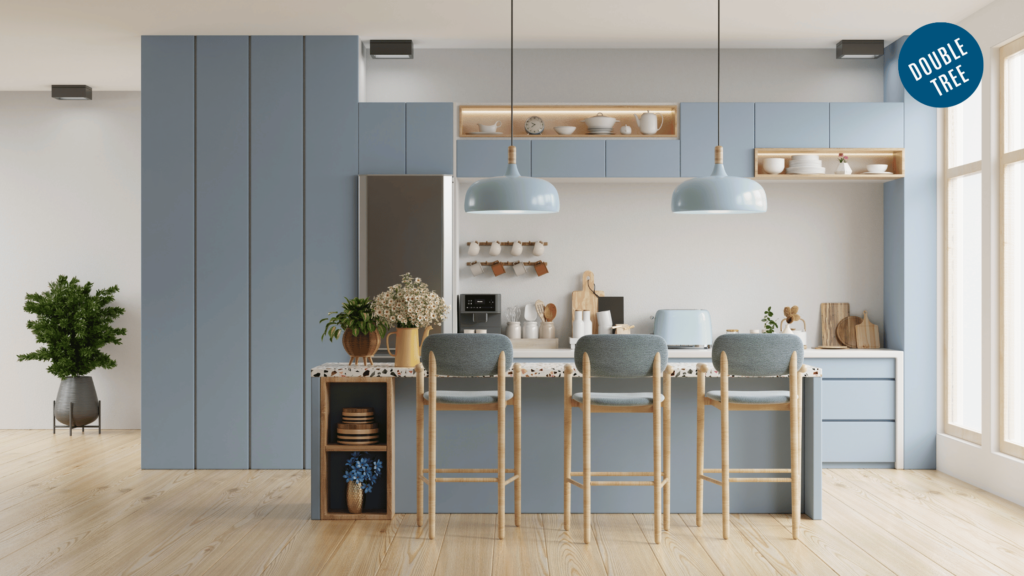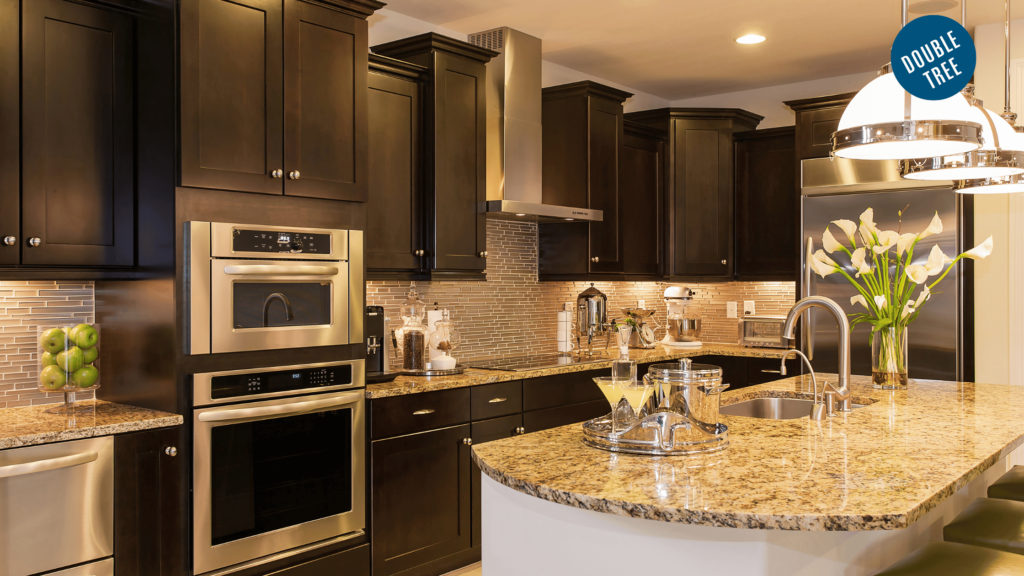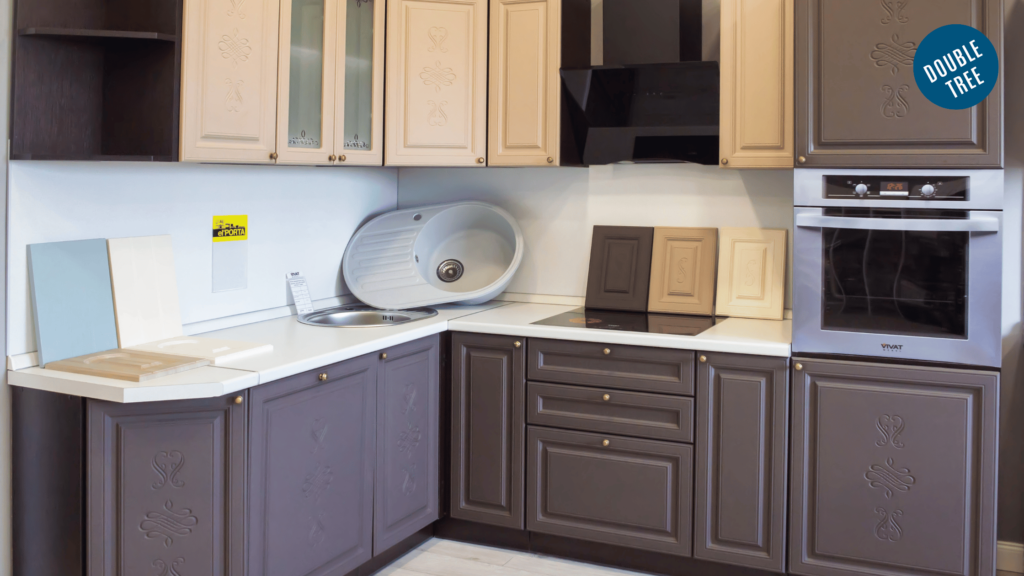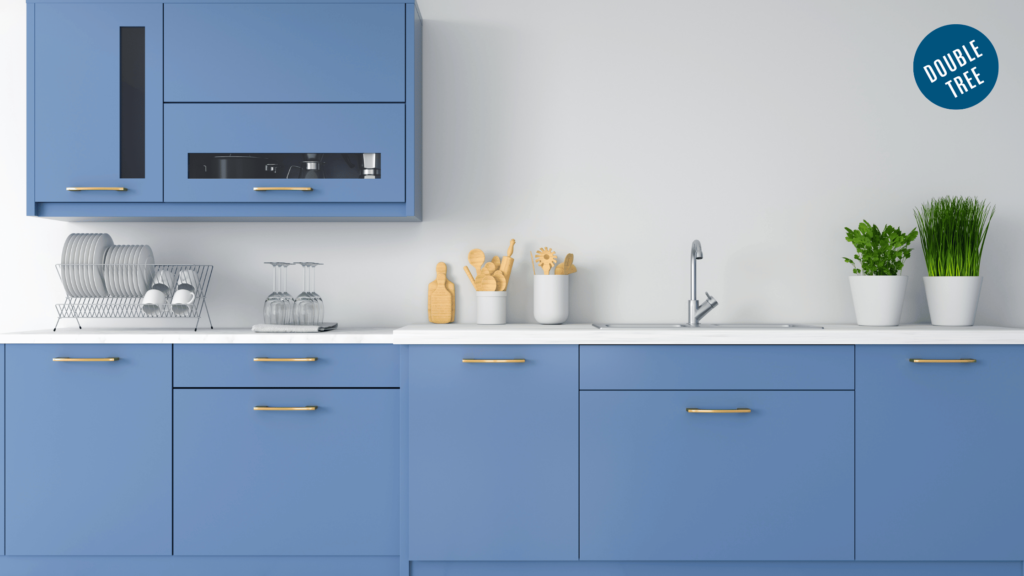In recent years, modular kitchens have changed the landscape of kitchen design and functionality. These customizable spaces have gained significant popularity among homeowners and interior designers.
However, a common question often arises: Is a modular kitchen durable? This comprehensive guide addresses this question by exploring the factors contributing to modular kitchens‘ longevity and resilience.
Modular Kitchens
Before we delve into durability, it’s crucial to understand what sets modular kitchens apart from traditional designs. A modular kitchen is a modern layout with pre-manufactured components, including cabinets, countertops, and accessories.
These components are designed to fit together seamlessly, allowing for customization and efficient use of space.
Key components of a modular kitchen include:
- Base cabinets
- Wall cabinets
- Tall units (for appliances or pantry storage)
- Countertops
- Hardware (hinges, handles, drawer slides)
- Backsplashes
The materials used in modular kitchens play a significant role in their overall durability. Common materials include Medium Density Fiberboard (MDF), plywood, particleboard, stainless steel, laminate, acrylic, and Polyvinyl chloride (PVC).
The choice of materials is crucial in determining how long your kitchen will last and how well it will withstand daily use.

Factors Affecting the Durability of Modular Kitchens
Several factors contribute to the longevity and durability of a modular kitchen. Let’s examine each of these in detail:
1. Quality of Materials
The durability of a modular kitchen is directly related to the quality of materials used in its construction. High-grade materials like marine plywood, high-density MDF, and quality stainless steel are more resistant to wear and tear, moisture, and temperature fluctuations.
When selecting a modular kitchen, one must inquire about the materials used and their quality grades.
2. Construction Techniques
The method used to assemble and construct the kitchen components significantly impacts their durability. Look for dovetail joints for drawers, cam and dowel fittings for easy assembly and disassembly, and edge banding to protect against moisture ingress.
These construction techniques can greatly extend the life of your modular kitchen.
3. Installation Process
A properly installed modular kitchen is likelier to stand the test of time. Professional installation ensures that units are level and properly aligned, joints are sealed correctly, and appliances are integrated safely and efficiently.
Poor installation can lead to premature wear and tear, misaligned doors, and other issues that can shorten the lifespan of your kitchen.

4. Maintenance and Care
Regular maintenance is key to preserving the durability of a modular kitchen. This includes cleaning spills immediately to prevent staining or water damage, using appropriate cleaning products for different surfaces, and periodically checking and tightening hardware.
A well-maintained kitchen can last significantly longer than one that’s neglected.
5. Environmental Factors
The kitchen environment can significantly impact durability. Factors to consider include humidity levels (especially important in coastal areas), temperature fluctuations, and exposure to direct sunlight.
Understanding these environmental factors and taking steps to mitigate their effects can help extend the life of your modular kitchen.
Durability of Different Modular Kitchen Components
Let’s break down the durability of individual components:
Cabinets and Drawers
Cabinets and drawers form the backbone of any modular kitchen and are subject to daily wear and tear. Their durability depends on:
- Material quality (e.g., marine-grade plywood vs. particleboard)
- Construction methods (dovetail joints, reinforced corners)
- Quality of finishes (laminate, veneer, paint)
With proper care, high-quality cabinets can last 20-30 years.
Countertops
Countertops endure constant use and must withstand heat, cuts, and spills. Popular materials and their durability include:
- Granite: Highly durable, resistant to heat and scratches
- Quartz: Engineered stone, non-porous and highly resistant to stains
- Laminate: Less durable but cost-effective; can last 10-20 years with care
Always use cutting boards and trivets to extend your countertops’ life.

Hardware
The quality of hinges, handles, and drawer slides can significantly affect your kitchen’s daily use and longevity. When choosing hardware, consider:
- Material (stainless steel is highly durable)
- Brand reputation
- Weight capacity (especially for drawer slides)
High-quality hardware can easily last 15-20 years or more.
Appliance Integration
While not strictly part of the modular kitchen structure, how integrated appliances can affect overall durability.
Ensure proper ventilation to prevent overheating, correct installation to avoid strain on surrounding cabinets, and use heat-resistant materials around cooking areas.
Modular vs. Traditional Kitchens: A Durability Comparison
When comparing modular kitchens to traditional ones, several factors come into play:
- Longevity: Traditional kitchens, built on-site, can last for decades if well-maintained. Modular kitchens, with quality materials, can match or exceed this lifespan.
- Resistance to Wear and Tear: Traditional kitchens often use solid wood, which can be more resistant to impacts but susceptible to moisture damage. Modular kitchens use engineered materials that can provide better resistance to moisture and temperature changes.
- Ease of Repairs and Replacements: Repairs in traditional kitchens can be complex and time-consuming. In contrast, individual components can be easily replaced in modular kitchens without disrupting the entire kitchen.
- Cost-Effectiveness: Traditional kitchens often have a higher initial cost but potentially lower long-term maintenance costs. Modular kitchens are more affordable upfront and allow the flexibility to upgrade components over time.

Tips for Ensuring the Longevity of Your Modular Kitchen
To maximize the durability of your modular kitchen, consider the following tips:
- Invest in Quality: Choose reputable brands known for using high-grade materials.
- Maintain Regularly:
- Wipe down surfaces daily.
- Clean cabinets and hardware monthly
- Check for loose fittings or signs of wear every six months.
- Address Issues Promptly: Don’t ignore small problems; they can escalate quickly.
- Use Wisely: Employ cutting boards, pot stands, and other protective accessories.
- Control Humidity: Use exhaust fans and maintain proper ventilation to prevent moisture buildup.
- Choose Materials Wisely: Select materials suited to your lifestyle and local climate.
- Ensure Professional Installation: Have your kitchen installed by certified professionals.

Conclusion: Are Modular Kitchens Durable?
Based on our comprehensive analysis, the answer to “Is a modular kitchen durable?” is a resounding yes – with caveats.
The durability of a modular kitchen depends on various factors, including the quality of materials, construction techniques, installation, and maintenance.
FAQs
Q: How long does a typical modular kitchen last?
A: A high-quality modular kitchen can last 15-20 years or more with proper care and maintenance.
Q: Are modular kitchens water-resistant?
A: Many modern modular kitchens use water-resistant materials and treatments, but it’s essential to clean spills promptly and maintain proper sealing.
Q: Can I replace just one part of my modular kitchen if it gets damaged?
A: Yes, one of the advantages of modular kitchens is the ability to replace individual components without disturbing the entire setup.
Q: How do I know if a modular kitchen brand offers durable products?
A: Look for brands with good reputations, check customer reviews, ask about material quality, and inquire about warranties and after-sales service.
Q: Is a modular kitchen worth the investment in terms of durability?
A: For many homeowners, the combination of durability, flexibility, and style makes modular kitchens a worthwhile investment. However, choosing quality products and maintaining them properly is crucial to maximize their lifespan.





